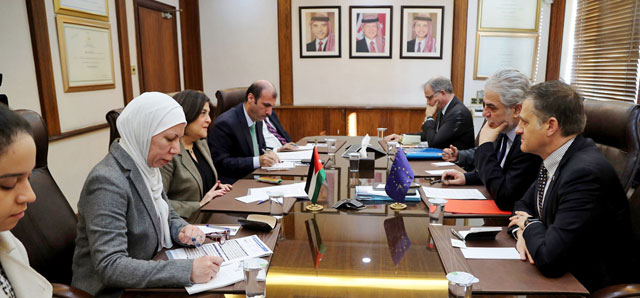AMMAN — In line with humanitarian principles and international laws, Jordan will not force Syrian refugees to return home, a senior official said on Sunday.
Minister of Planning and International Cooperation Mary Kawar called on the international community to increase its support to Jordan so it could continue supporting Syrian refugees.
Kawar's remarks came during a meeting with European Commissioner for Humanitarian Aid and Crisis Management Christos Stylianides, according to a ministry statement sent to The Jordan Times.
During the meeting, Kawar presented a briefing on Jordan's obstacles resulting from hosting around 1.3 million Syrian refugees, stressing the need for coordinated international efforts to support the Kingdom's humanitarian assistance to refugees.
In its statement, the ministry said that the number of Syrian refugees returning home voluntarily was "still weak", meaning that pressure on the country's services and infrastructure remained.
Stressing the need for continued EU support to Jordan, Stylianides voiced the EU’s appreciation for Jordan's humanitarian assistance to refugees, the statement said.
The two sides also discussed preparations for the third Brussels Conference on Supporting the Future of Syria and the Region, slated for the end of March next year, according to the statement.
During a field visit to the Azraq camp for Syrian refugees on Saturday, Stylianides said that the EU had provided over 344 million euros in humanitarian assistance to refugees since 2012, to ensure that health, food and basic services are delivered, and to meet the needs of the refugee community during the winter season.
He said the EU’s total humanitarian aid to Jordan in 2018 amounted to 36 million euros, which mainly benefited refugees in the Zaatari and Azraq camps, as well as Syrian refugees living in urban areas and near the border.
